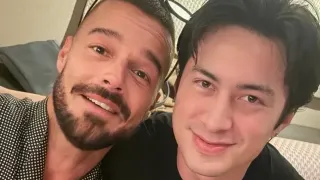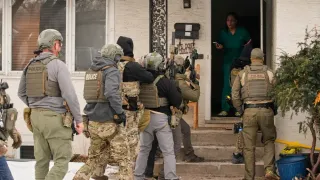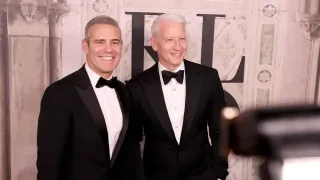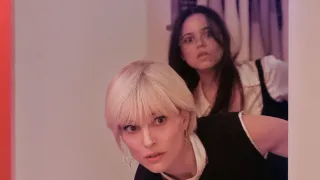April 23, 2020
'Far From Perfect,' Pandemic-themed Film, Premieres on Amazon Prime This Weekend
Joe Siegel READ TIME: 2 MIN.
"Far From Perfect," a new feature-length film available for streaming this weekend, explores the human condition in the midst of the coronavirus pandemic.
It was written by Providence-based playwright Lenny Schwartz ("Ditko") and directed and edited by Boston-based filmmaker Nathan Suher ("Higher Methods").
"Far From Perfect," which will be shown on Amazon Prime starting Saturday, April 25 at 8pm, features snapshots from the lives of an eclectic group of individuals, including a frustrated grocery store employee, a pot dealer, an elderly woman, the inventor of a rocket ship, and an aspiring rapper.
"The film shows people coping with something catastrophic, like they have never seen," said Schwartz, who also co-directed. "I think if there is a message it is that we are all in this together. Like it or not."
The characters in "Far From Perfect" are fearful, confused, and angry at being stuck at home. Some have lost their jobs and have seen their relationships strained. They endure the pain and isolation from social distancing.
Schwartz, who has written several screenplays and serves as the head of the Daydream Theater Company, was astonished by the level of interest in the project.
"I literally was home a few weeks back on a Saturday and had a thought about writing a short film, probably a short, and posted on Facebook," Schwartz recalled. "Just a project to have a little fun. I expected ten responses... we got over a hundred."
Even more impressive, "Far From Perfect" was written, cast, filmed, and edited over a 19-day period.
The very large cast features many Providence, RI stage actors, including Michael Thurber ("The Seduction of The Innocent"), Kerstyn Desjardin ("Queen Margaret"), Geoff White ("Ditko"), Lee Rush ("Agnes of God"), Joe Luca ("Ben Minus Zoe Minus Ben"), Samantha Acampora ("The Haunting of Hill House"), Bob Lively ("Co-Creator"), and Sonya Joyner ("Doubt").
Schwartz wrote the entire film on his cell phone and laid down some ground rules for his performers. They were responsible for filming their performances using any device they had available.
"Everyone got basic direction," Schwartz explained. "Some got more than others. The pacing was in the script. The actors had full carte blanche though. The biggest thing for me was to make sure a performer didn't go off reservation."
The overarching message of the film can be found in a haunting monologue from a writer, played by Schwartz.
"Things get dark," the writer says. "You have to try to find a light, try to dig yourself out, try to dig deep, find some sort of joy in whatever's left. That's really all we got."






